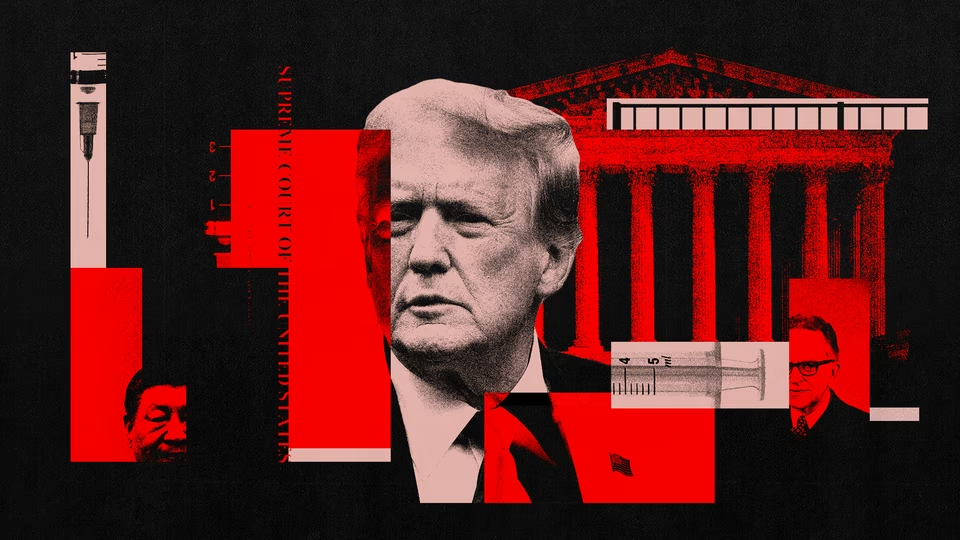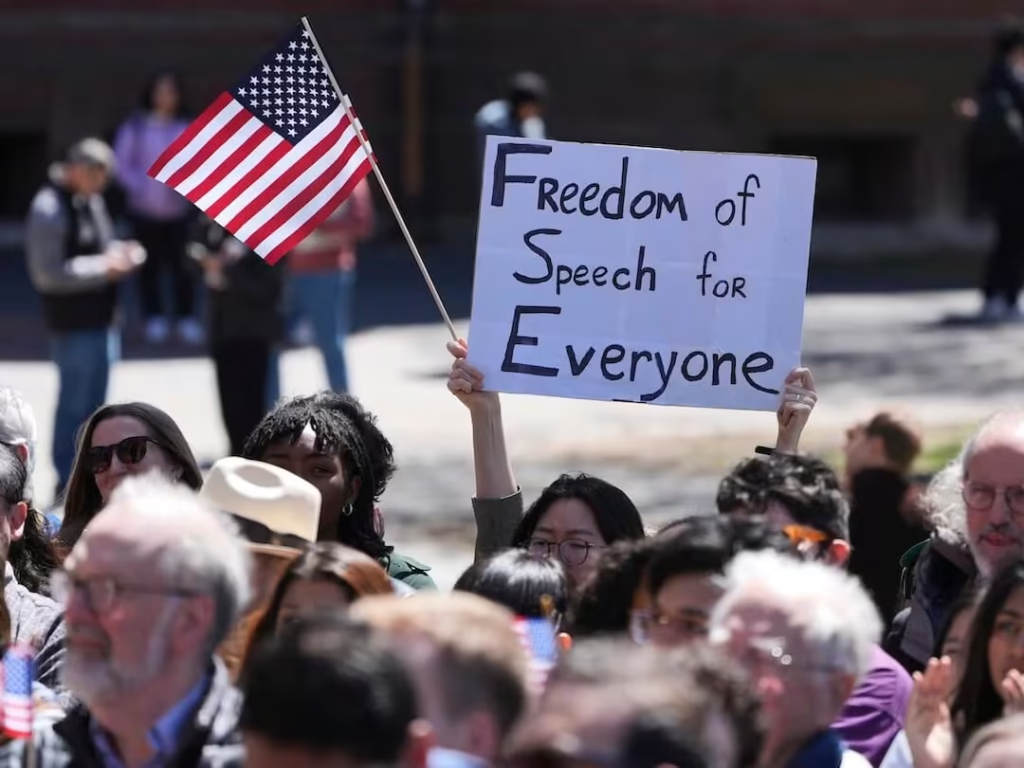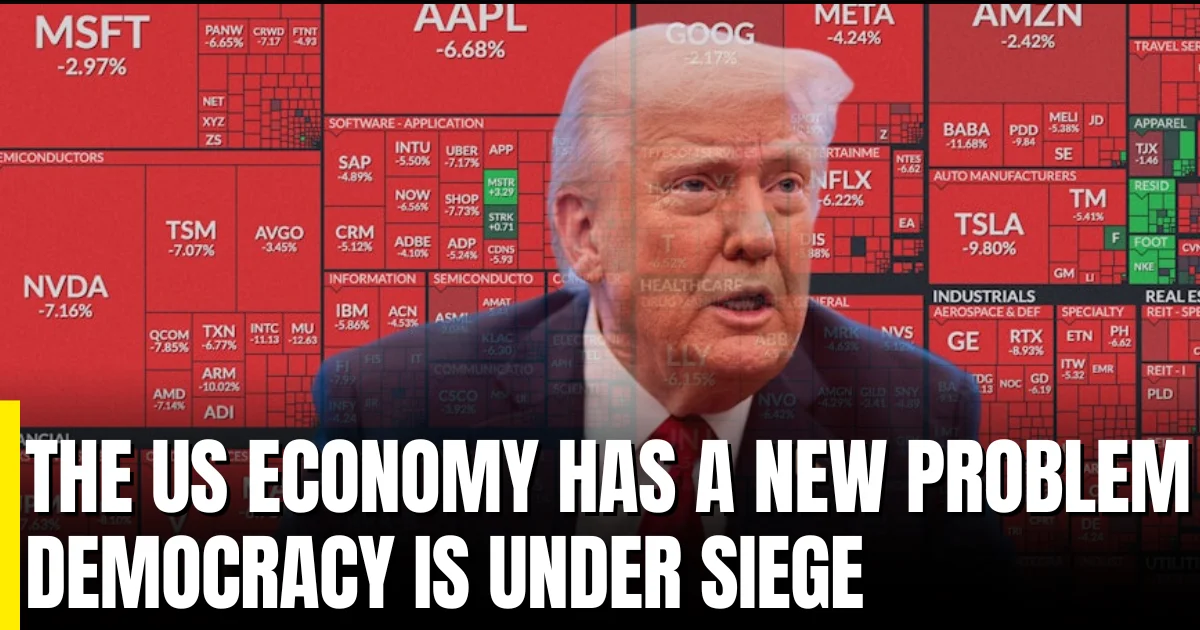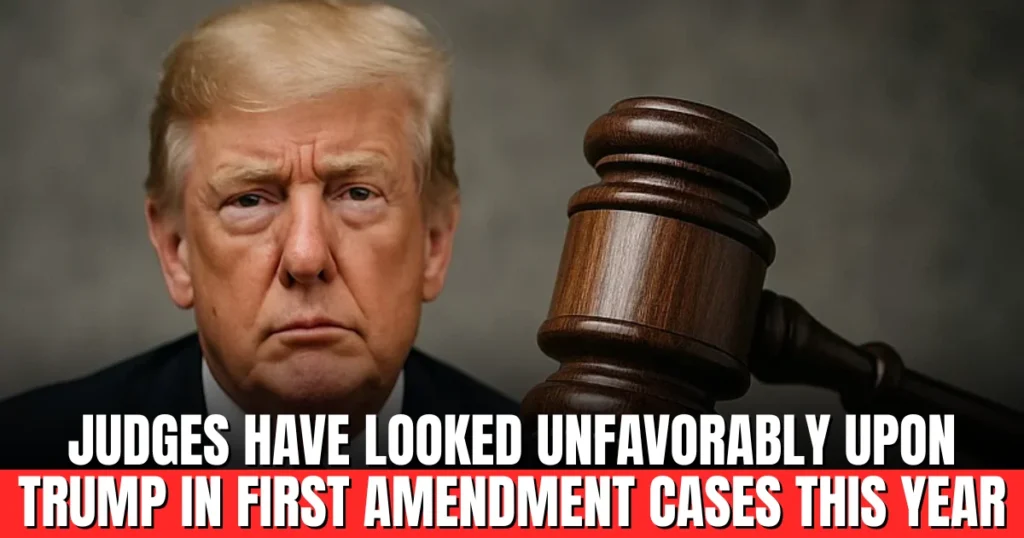Experts warn US democracy is eroding fast. Discover how political pressure, tariffs, and state control threaten America’s economy.
Table of Contents
The US Economy Has a New Problem: Democracy Under Siege
America’s economy faces a growing challenge — and it’s not just inflation, jobs, or global trade. Instead, experts warn that the erosion of democratic institutions could destabilize both the markets and the nation’s long-term growth.
Recent actions by the government — from firing key statisticians to meddling in private business — have sparked deep concern among economists, CEOs, and political scientists alike. Many believe these moves resemble tactics seen in authoritarian regimes, not in the world’s leading democracy.

Democracy and the Economy: Why the Stakes Are So High
Research consistently shows that democracies outperform autocracies economically. Studies reveal that when countries democratize, GDP per capita rises by nearly 20% in the long run. The reason is simple: democracy encourages investment in education, healthcare, and innovation, while authoritarian systems tend to create instability and erratic policymaking.
A 2019 peer-reviewed study titled “Democracy Does Cause Growth” highlighted how free societies promote stronger institutions that directly benefit economic prosperity. On the other hand, populist regimes often deliver the opposite effect, leaving behind weaker growth and poorer long-term outcomes.
Business Leaders Sound the Alarm
While most CEOs remain silent publicly to avoid political retaliation, many are increasingly concerned behind closed doors. Yale professor Jeffrey Sonnenfeld, often called the “CEO Whisperer”, revealed that top executives privately describe the erosion of democracy as “deeply alarming.”
Some worry about the government’s growing role in state-backed investments, including high-profile deals involving Intel, US Steel, and rare earth companies. Critics warn this blurs the line between capitalism and state ownership — a model more familiar in China or Russia than the United States.
Former Vice President Mike Pence cautioned that America risks “sliding into dangerous territory,” while other economists argue that such intervention could permanently distort competition and free markets.
Rising Pressure on Free Speech and Institutions

Another major concern is the growing pressure on media and independent institutions. Recent threats against late-night programs and the firing of top statisticians and Federal Reserve officials have raised red flags.
Experts warn that undermining free expression and weakening independent agencies could shake investor confidence and further destabilize markets. Economist Vanessa Williamson described the situation as “rapid democratic erosion,” stressing that the United States is moving toward worst-case scenarios that once seemed unthinkable.
Government Overreach or Economic Strategy?
The White House defends its actions, arguing that strong intervention is necessary to restore economic power and attract global investment. Officials point to trillions of dollars in commitments from tech and pharmaceutical giants as proof of success.
However, critics counter that short-term gains may come at the cost of long-term stability. State-controlled enterprises, unpredictable tariff threats, and politically motivated interventions could undermine trust in America’s economic system — one of its strongest global advantages.
FAQs on US Democracy and the Economy
Q1: Why is democracy important for economic growth?
Democracy supports transparency, accountability, and innovation — all key drivers of sustainable economic expansion.
Q2: How are US businesses reacting to democratic erosion?
Publicly, most CEOs remain cautious. Privately, many express deep concerns about state control, tariffs, and institutional instability.
Q3: What risks do state-owned business models pose?
They reduce competition, distort markets, and risk locking taxpayers into failed ventures — a system more common in authoritarian economies.
Q4: Could democracy’s erosion impact global markets?
Yes. As the US is the world’s largest economy, political instability could affect trade, investment flows, and investor confidence worldwide.
Conclusion: The Future of US Democracy and Economic Stability
The erosion of democracy in the United States is no longer just a political debate — it’s an economic risk with far-reaching consequences. From state intervention in private businesses to pressure on media and independent institutions, the very foundation of America’s economic stability is being tested.
If democratic values continue to weaken, the long-term costs could outweigh any short-term gains. For business leaders, investors, and citizens alike, the path forward may determine not only the health of the US economy but also its role as a global leader in democracy and free markets.

